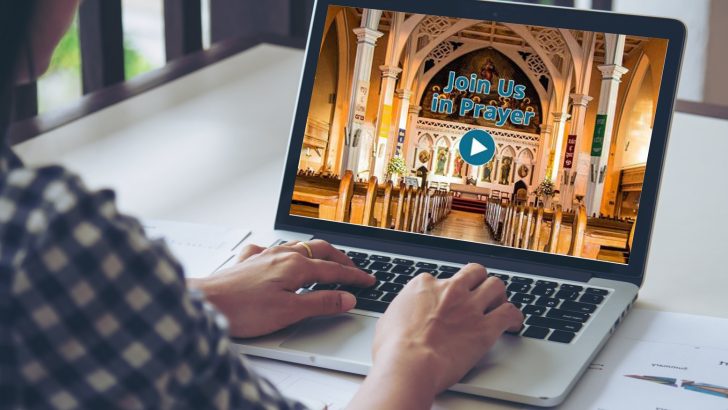In the year 304, the Emperor Diocletian forbade Christians – on pain of death – from possessing the Scriptures, from gathering on Sundays to celebrate the Eucharist and from building places in which to hold their assemblies.
In Abitene, a small village in present-day Tunisia, 49 Christians were taken by surprise one Sunday while they were celebrating the Eucharist, gathered in the house of Octavius Felix, thereby defying the imperial prohibitions. They were arrested and taken to Carthage to be interrogated by the Proconsul Anulinus.
Significant among other things is the answer a certain Emeritus gave to the Proconsul who asked him why they had disobeyed the Emperor’s orders. He replied: “Sine dominico non possumus”: that is, we cannot live without joining together on Sunday to celebrate the Eucharist. We would lack the strength to face our daily problems and not to succumb.
After being tortured, these 49 martyrs of Abitene were killed.
We are privileged and blessed to live in a time when we are not – thank God – prevented from attending Mass because of persecution. Instead, sensible precautions have been taken which mean that many Sunday Masses will not take place across Ireland, even if some weekday Masses will.
For many of us, this will be the first time in many years that the Lord’s Day has not been marked by the Celebration of the Eucharist. And yet, like the martyrs of Abitene we know that the Eucharist is the source and summit of the Christian life. But, we also know that this temporary cancellation of public Masses is not a time for despair or despondency, nor does it deprive us of the riches of the Eucharist.
Church leaders have correctly followed the advice from healthcare professionals that larger gatherings of people should not go ahead in a bid to slow down the spread of coronavirus. This is a painful time for Catholics, but it is also a time when we must accept that sacrifices have to be made for the common good: in this case, the elderly and vulnerable people who are most at risk of contracting the virus.
It is a time for solidarity with those who may be already suffering from Covid-19 and their loved ones, for people who are concerned or anxious about the current pandemic and for our health and critical care professionals and everyone working to overcome this crisis.
The most concrete form of solidarity for people of faith is first and foremost prayer. We can take comfort from the fact that while most public Masses will not go ahead, priests will continue to offer the Holy Sacrifice for the needs of their parishioners and of the whole world. The Mass is the same whether attended by two million people such as at World Youth Day, or by only a handful of people in a lonely mountain valley during Penal times.
Every Mass celebrates the Church’s communion with God the Father, Son and Holy Spirit. Everything about the Mass is intended to draw us into closer communion with God and with those God loves: everyone.
We can draw strength and consolation from the Mass even when we are not present just like we take comfort in the knowledge that someone we may not even know – such as members of contemplative religious orders – is praying for us.
While public Masses are not being celebrated, we can also participate in the Mass online or via radio or television and be in prayerful solidarity with our fellow believers.
In our Catholic Faith, we also have the wonderful tradition of a Spiritual Communion.
St Thomas Aquinas defined a Spiritual Communion as “an ardent desire to receive Jesus in the Most Holy Sacrament and in lovingly embracing Him as if we had actually received Him.”
Many people find this prayer from St Alphonsus Liguori helpful in making a Spiritual Communion:
My Jesus, I believe that you are present in the most Blessed Sacrament. I love You above all things and I desire to receive You into my soul. Since I cannot now receive You sacramentally, come at least spiritually into my heart. I embrace You as if You were already there, and unite myself wholly to You. Never permit me to be separated from You. Amen.
The absence of public Masses is also a time for us to think of the many Catholics around the world who – either because of the absence of a priest or indeed persecution – cannot regularly attend Mass or receive the Eucharist.


 Michael Kelly
Michael Kelly
